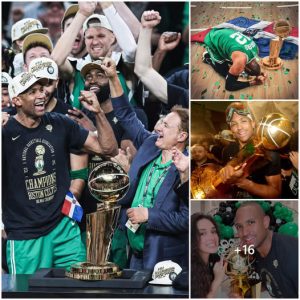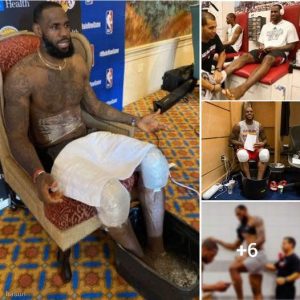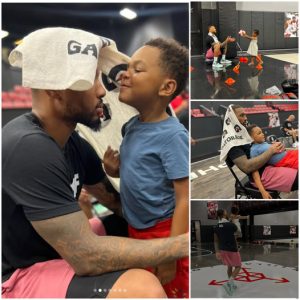Magic Johnson, born Earvin Johnson Jr., is widely regarded as one of the greatest point guards in the history of the NBA. Over his 13-year career, he clinched 5 NBA championships and 3 MVP awards with the Los Angeles Lakers, cementing his legacy as a basketball legend. However, his success did not stop there. Since his retirement in 1991, Magic Johnson has transformed himself into a tremendously successful entrepreneur, amassing a net worth of $620 million as of 2023.
This journey from the basketball court to the boardroom is nothing short of inspirational. In this article, we will look into the details of Magic Johnson’s net worth, exploring his early life, basketball career, transition to business, investment ventures, philanthropy, and current assets.
Earvin “Magic” Johnson Jr. was born on August 14, 1959, in Lansing, Michigan, the fourth of seven children. His father worked at a General Motors plant while his mother was a school janitor. Growing up in a working-class family, Johnson developed a strong work ethic from a young age. He discovered his love for basketball in his early years and quickly gained recognition for his creative playing style, earning him the famous nickname “Magic.”
College Career
Johnson attended Michigan State University, where he made a name for himself as a standout basketball player. In 1979, he led the Michigan State Spartans to a national title, defeating the Indiana State Sycamores, a team led by his future NBA rival, Larry Bird. This victory not only cemented Johnson’s status as a top college player but also set the stage for one of the most iconic rivalries in the history of basketball.

NBA Career
In the 1979 NBA Draft, Johnson was selected 1st overall by the Los Angeles Lakers. This marked the beginning of a legendary career that would span 13 seasons. During his time with the Lakers, Johnson won five NBA championships (1980, 1982, 1985, 1987, 1988), three NBA Most Valuable Player (MVP) awards (1987, 1989, 1990), and made 12 All-Star appearances. He was known for his exceptional passing ability, court vision, and leadership on the court. His rivalry with Boston Celtics forward Larry Bird not only increased the NBA’s popularity in the 1980s but also contributed to the Lakers’ success during this era.
HIV Diagnosis and Retirement
In a shocking turn of events, Johnson announced his retirement from professional basketball in 1991 after testing positive for HIV. At the time, the disease was widely misunderstood, and many believed it to be a death sentence. However, Johnson used his platform to raise awareness about HIV/AIDS, showing the world that it was possible to live a healthy and productive life with the disease. He briefly returned to the NBA in 1996 but retired for good at the end of the season.
After his initial retirement from professional basketball in 1991, Magic Johnson did not waste any time pivoting into the world of business. He recognized the potential of leveraging his fame and popularity for entrepreneurial success. Johnson had always shown an interest in business, even during his playing days, and his retirement provided the perfect opportunity to fully immerse himself in various ventures.
Magic Johnson Theaters
One of Johnson’s first major business ventures was the creation of Magic Johnson Theaters. In 1994, he partnered with Sony Pictures Entertainment to develop a chain of movie theaters in underserved urban areas. The first theater opened in Los Angeles, and the venture eventually expanded to include several locations across the country. This move not only provided entertainment options in areas that were often overlooked by major chains but also created jobs and spurred economic development in those communities.
Endorsement Deals
Johnson also secured endorsement deals with major brands like Pepsi and Converse. His friendly demeanor and widespread popularity made him an attractive spokesperson for these companies. Additionally, his endorsement deals often included equity stakes in the companies he was promoting, which contributed to his growing wealth.
Starbucks Partnership
In 1998, Johnson formed a partnership with Starbucks CEO Howard Schultz to open Starbucks stores in urban neighborhoods. Johnson’s company, Magic Johnson Enterprises, and Starbucks formed a joint venture called Urban Coffee Opportunities (UCO), which aimed to bring Starbucks stores to communities that were traditionally underserved by major retailers. The partnership was a success, and Johnson eventually sold his share of the venture back to Starbucks for a reported $75 million in 2010.
In 1987, while still an active NBA player, Johnson founded Magic Johnson Enterprises (MJE), a company that would serve as the umbrella organization for his various business ventures. However, it was only after his retirement from professional basketball that Johnson was able to fully dedicate his time and energy to growing the company.
Diverse Portfolio
Over the years, MJE has built an impressive portfolio of investments across a wide range of industries. This includes real estate, movie theaters, restaurants, and more. Johnson’s strategy has always been to invest in underserved urban communities, providing much-needed services and creating jobs in the process.
Major Ventures
Some of the major ventures under the MJE umbrella include:
- Magic Johnson Theaters: A chain of movie theaters located in urban areas.
- 24 Hour Fitness Magic Johnson Sport: A chain of fitness centers developed in partnership with 24 Hour Fitness.
- Magic Johnson Bridgescape: A program that helps high school dropouts complete their education.
- SodexoMAGIC: A food service and facilities management company formed in partnership with Sodexo.
Partnerships and Collaborations
Johnson has also formed partnerships and collaborations with major brands seeking to connect with urban communities. For example, he has worked with companies like Best Buy and T.G.I. Friday’s to open locations in urban areas. These partnerships not only provide services to underserved communities but also help to create jobs and spur economic development.
Magic Johnson’s business acumen extends beyond the ventures under Magic Johnson Enterprises. He has also been actively involved in real estate development and other investment ventures.
Canyon-Johnson Urban Fund
In 2001, Magic Johnson partnered with Canyon Capital Realty Advisors to create the Canyon-Johnson Urban Fund dedicated to real estate development in underserved communities. The fund has raised over $1 billion and been involved in projects like retail centers, hotels, and residential properties.
Ownership Stakes in Sports Teams
Johnson acquired ownership stakes in professional sports teams like the Los Angeles Dodgers MLB team in 2012. He also owns part of the WNBA’s Los Angeles Sparks and previously held a stake in the Los Angeles Lakers.
Other Notable Investments
Additionally, Johnson made early investments in companies like Vibe Holdings and EquiTrust Life Insurance. He also invested in health clubs and became a fast food franchisee for chains like Burger King and TGI Fridays.
Magic Johnson has dedicated himself to giving back through philanthropic work off the court.
Magic Johnson Foundation
In 1991, after announcing his HIV diagnosis, Johnson founded the Magic Johnson Foundation to address educational, health, and social needs in underserved urban communities.
The foundation has provided millions in funding for HIV/AIDS prevention, awareness, testing, and support services. By openly discussing his diagnosis, Johnson fought against the stigma and helped educate communities about the disease.
Scholarship Programs
His organization also provides scholarships to youth in need to increase access to higher education. The Magic Johnson Foundation established Community Empowerment Centers offering computer literacy, job training, and educational programs as well.
Additionally, Johnson has donated millions to his alma mater Michigan State for scholarships and facilities. He has also supported various other organizations like the Boys & Girls Clubs of America and United Negro College Fund over the years. Johnson’s philanthropic efforts have provided critical resources and opportunities to many.
HIV Diagnosis and Retirement
In a shocking turn of events, Johnson announced his retirement from professional basketball in 1991 after testing positive for HIV. At the time, the disease was widely misunderstood, and many believed it to be a death sentence. However, Johnson used his platform to raise awareness about HIV/AIDS, showing the world that it was possible to live a healthy and productive life with the disease. He briefly returned to the NBA in 1996 but retired for good at the end of the season.
As of 2023, Magic Johnson’s net worth is estimated to be $620 million. This wealth has been accumulated through a combination of earnings from his basketball career, endorsement deals, business ventures, and investments. Though a significant portion of his wealth came from endorsements leveraging his basketball stardom, the majority of his net worth derives from his diverse investments and partnerships.
Net Worth Over the Years
Here is a table showing the progression of Magic Johnson’s net worth from 2020 to 2023:
| Year | Net Worth |
|---|---|
| 2020 | $600 million |
| 2021 | $610 million |
| 2022 | $615 million |
| 2023 | $620 million |
Major Assets
Some of Magic Johnson’s major assets include:
- Real Estate: Johnson has invested in a variety of real estate properties through the Canyon-Johnson Urban Fund and other ventures.
- Sports Teams: Johnson owns a stake in the Los Angeles Dodgers (MLB) and the Los Angeles Sparks (WNBA).
- Business Ventures: Johnson’s company, Magic Johnson Enterprises, has a diverse portfolio of investments, including movie theaters, fitness centers, and restaurant franchises.
- Endorsement Deals: Johnson has secured endorsement deals with major brands like Pepsi and Converse, often including equity stakes in the companies he promotes.
Investment Strategy
Johnson’s investment strategy has always been focused on creating opportunities in underserved urban communities. Whether it’s through real estate development, opening businesses, or creating jobs, Johnson has consistently used his wealth and influence to make a positive impact on the communities he serves.
Magic Johnson’s story epitomizes the immense earning potential that sports superstars can achieve long after retiring from the game. His net worth of $620 million in 2023 proves how skills like determination and smart investing allow elite athletes to transition into equally successful business careers.
Johnson’s journey from being a basketball legend to a business tycoon shows that his strong work ethic and leadership ability drove not just his excellence on the court, but also his entrepreneurial ventures off of it. Though he earned around $18 million in salary during his iconic 13-year career, the majority of his massive net worth came after retirement through lucrative partnerships, endorsements, and investments.
Today, Magic Johnson stands as the quintessential example of an athlete turning sports fame into a multi-hundred million dollar personal fortune. With his continued business successes, Johnson’s astronomical net worth is likely to grow even higher in the coming years. His life and career demonstrate the tremendous financial rewards possible when sports icons expand their horizons into savvy business ventures beyond the game.





